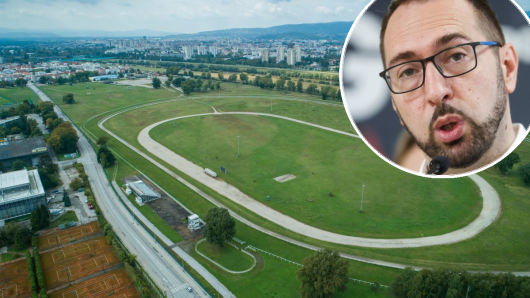Representatives of protesting farmers walked out of Tuesday's meeting between Agriculture Minister Petar Cobankovic and representatives of farmers' associations shortly before it ended, after he said he would come to talks in the Slavonia region when they removed their tractor road blockades, while representatives of other farmers' associations said they were satisfied with the implementation of a recent agreement with the minister.
The president of the Croatian farmers' trade union, Tomislav Pokrovac, said the representatives of farmers who had been protesting for 13 days now came to the meeting but wanted the minister to come to another meeting in Slavonia. After he said he would do so after they moved their tractors off the roads, they walked out of the meeting.
Speaking to the press afterwards, Pokrovac and Zvonko Pipic, leader of a farmers' association from Virovitica-Podravina County, said they would not remove the tractors until Cobankovic came to Slavonia and that there would be more road blockades.
Cobankovic reiterated to the press that he would go to Slavonia after the tractors were removed and referred to data showing that the number of protesting farmers was not large.
He said today's meeting was convened to assess the implementation of conclusions agreed with farmers' representatives earlier this month.
The minister said the payment of incentives for crops, in the amount of HRK 2,000 per hectare, would continue tomorrow. He said the first instalment, HRK 900, was already paid and that the rest would be paid by the end of April.
Regarding the unfreezing of farmers' accounts in which they receive the incentives, amendments have been moved to the law on state grants with a view to making the incentives exempt from distraint.
Deadlines regarding capital investments will also be honoured.
For next week, Cobankovic announced a meeting with commercial banks to discuss the possibility of loan rescheduling. He said attempts would be made to find the best solutions regarding the legalisation of facilities with the Environmental Protection, Physical Planning and Construction Ministry and the Regional Development, Forestry and Water Management Ministry.




































